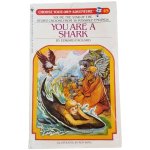StillStunned
Writing...
- Joined
- Jun 4, 2023
- Posts
- 3,870
A while ago I made a bold statement that I hated first person, present tense. Then I gave it a try, and it turned out quite well. The form serves the story: the reader needs to be in the narrator's head as the events unfold. Past tense wouldn't have had the same impact, either from the narrator's initial worry and excitement, or from his reaction to the big plot twist.
Now I'm wondering whether a second person POV could actually work for a particular type of story. A lot of "you shouldn't, you know you shouldn't, but you can't help yourself." Probably I/T, or perhaps NC/R.
So that's going to be my next project. Watch this space! (Or not, if the idea of a second person POV makes you physically sick.)
Now I'm wondering whether a second person POV could actually work for a particular type of story. A lot of "you shouldn't, you know you shouldn't, but you can't help yourself." Probably I/T, or perhaps NC/R.
So that's going to be my next project. Watch this space! (Or not, if the idea of a second person POV makes you physically sick.)

